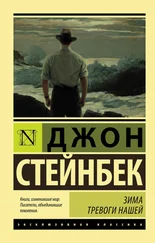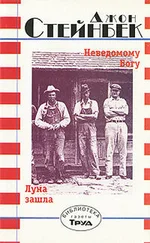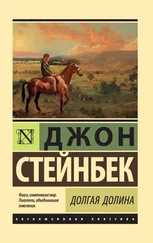Джон Стейнбек - Cup of Gold [Золотая чаша]
Здесь есть возможность читать онлайн «Джон Стейнбек - Cup of Gold [Золотая чаша]» — ознакомительный отрывок электронной книги совершенно бесплатно, а после прочтения отрывка купить полную версию. В некоторых случаях можно слушать аудио, скачать через торрент в формате fb2 и присутствует краткое содержание. Год выпуска: 1929, Жанр: Прочие приключения, на английском языке. Описание произведения, (предисловие) а так же отзывы посетителей доступны на портале библиотеки ЛибКат.
- Название:Cup of Gold [Золотая чаша]
- Автор:
- Жанр:
- Год:1929
- ISBN:нет данных
- Рейтинг книги:5 / 5. Голосов: 1
-
Избранное:Добавить в избранное
- Отзывы:
-
Ваша оценка:
- 100
- 1
- 2
- 3
- 4
- 5
Cup of Gold [Золотая чаша]: краткое содержание, описание и аннотация
Предлагаем к чтению аннотацию, описание, краткое содержание или предисловие (зависит от того, что написал сам автор книги «Cup of Gold [Золотая чаша]»). Если вы не нашли необходимую информацию о книге — напишите в комментариях, мы постараемся отыскать её.
Cup of Gold [Золотая чаша] — читать онлайн ознакомительный отрывок
Ниже представлен текст книги, разбитый по страницам. Система сохранения места последней прочитанной страницы, позволяет с удобством читать онлайн бесплатно книгу «Cup of Gold [Золотая чаша]», без необходимости каждый раз заново искать на чём Вы остановились. Поставьте закладку, и сможете в любой момент перейти на страницу, на которой закончили чтение.
Интервал:
Закладка:
"No," he said, "no; I have more payment in your teaching and in the father you have been to me than money could ever equal." Now he was going, Henry knew that he had grown to love this red-faced, wistful man.
Strong, glistening blacks pulled at the oars of the canoe, and it went skimming toward an anchored ship, a ship commissioned by the States-General to carry black slaves from Guinea to the islands. James flower, sitting in the canoe's stern, was very red and very silent. But as they neared the ship's side, he lifted up his head and spoke pleadingly to Henry.
"There are books on the shelves that you have never read."
"I shall come back, one day, and read them."
"There are things in my mind I have never told you, boy."
"When I have the admiration of men, I shall come to you and you shall tell them to me. "
"You swear it? "
"Well-yes, I swear. "
"And how long will it take you to do these things, Henry? "
"I cannot tell; one year-or ten-or twenty. I must make a very admirable name." Henry was climbing over the ship's side.
"I shall be lonely in the evenings, son. "
"And I, too, sir. Look! we cast off! Good-by, sir. You will remember Paulette? "
"Paulette? — Paulette? — Ah, yes; I remember. "
Henry Morgan came to the English town of Port Royal and left his baggage on the beach while he went looking for his uncle.
"Do you know where I may find the Lieutenant-Governor?" he asked in the streets.
"His Palace is yonder, young man, and who knows he may be in it."
His Palace-it was like a British gentleman become an official far from home. It was like the man Robert Morgan had described. His letters dated from the Palace of the Lieutenant-Governor. Henry found the Palace, a low grubby house with walls of whitewashed mud and a roof of red tiles badly molded. There was a gaudy halberdier standing at the door, holding his great, ineffectual weapon rigidly before him, the while he maintained a tortured decorum in the face of a swarm of enemy flies.
The halberd lowered across the pathway as Henry approached.
"I am looking for Sir Edward Morgan."
"What do you wish with His Excellency?"
"Why, you see, sir, he is my uncle, and I wish to speak with him."
The soldier scowled suspiciously and stiffened his hold on the halberd. Then Henry remembered his lessons of the plantation. Perhaps this man, for all his red coat, might be something of a slave.
"Get out of my way, you damned pup," he cried. "Get out of my way or I'll see you hanged."
The man cowered and almost dropped his weapon. "Yes, sir. I'll send your word, sir." He blew a little silver call, and when a servant in green lace came to the door, he said: "A young gentleman to see His Excellency."
Henry was led into a little room made dark with thick, gray hangings edged with dull gold. There were three dim portraits on the walls, in black frames; two cavaliers in plumed bats, holding their swords horizontally so they looked like stiff, slender tails, and a pretty lady with powdered hair and a silken gown which left her shoulders and half her breasts uncovered.
From some place beyond the curtained doorway there came the thin twanging of a harp slow struck.
The servant took Henry's letter and left him alone.
And he felt very much alone. It was a house of cold, precise hair-splitting. One was aware of a polite contempt even in the pictured faces on the wall. The British arms were embroidered on the curtains of the door, the lion on one side, holding half the shield, and the unicorn, with his half, on the other. When the curtains hung straight the design was complete. In this room, Henry began to fear his uncle.
But all these thoughts of his were shocked from his brain when Sir Edward appeared. It was his father as he remembered him, and yet never his father. Old Robert would never have had a mustache like an eyelash, and nothing in Robert's life could have made him pinch his lips together until they were as thin as the mustache. These two might have been born alike as beans, but each had created his own mouth.
Robert had spoken truth; this man was his strutting counterpart. But Sir Edward was like an actor, who, though cast in a ridiculous role, yet makes his part seem the correct thing and all others absurd. His purple coat with lace at the neck and wrists, the long rapier, lean as a pencil in a scabbard of gray silk, the gray silk stockings and soft gray shoes with bowed ribbons on them, seemed to Henry the highest type of proper wear. His own good clothing was shabby by comparison.
His uncle had been looking at him steadily, waiting for Henry to speak first.
"I am Henry Morgan, sir-Robert's son," he began simply.
"I see you are. There is a resemblance-a faint likeness. And what may I do for you?"
"Why, I–I don't know. I came to call on you and inform you of my existence."
"That was kind of you-ah-very kind."
It was difficult to broach speech into this field of almost sneering courtesy. Henry asked, "Have you heard any single thing of my parents in the long five years I have been out?"
"Five years! What have you been doing, pray?"
"I was a bond-servant, sir. But of my parents?"
"Your mother is dead."
"My mother is dead," Henry repeated in a whisper. He wondered if she had died soon after he had gone. He did not feel very badly about it, and yet the words sounded such tremendous things, such final things. This was the end of something that might never be again. "My mother is dead," he murmured.
"And my father?"
"I have heard that your father does peculiar things in his rose garden. Squire Rhys wrote me of it. He plucks the full flowers and casts them into the air like one amazed. The ground is covered with petals and the neighbors stand about and laugh at him. Robert was never normal; indeed, he was never quite sane, or he might have gone far with James I. I, for one, always thought he would come to some disgrace or other. He revered nothing worthy of reverence. Why must he do this thing in the open, with the people jeering? It brings ridicule on his-ah-relatives."
"And do you think he is really insane, Uncle?"
"I do not know," Sir Edward said, and added with a touch of impatience, "I merely quoted Squire Rhys' letter. My position does not allow me time for vain conjecture-nor much time for idle conversation," he said pointedly.
The methodic twanging of the harp had ceased, and now the curtain of the door was thrust aside and a slender girl entered the room. It was difficult to see her in this dark place. It was plain she was not beautiful, but rather proudly pretty. She was softly dressed and her face was pale. Even her hair was pale fragile gold. Altogether she seemed a wan, tired echo of Sir Edward.
The girl was startled at seeing Henry there, and he found that he was a little afraid of her in the same manner that he was growing to fear Sir Edward. She looked at Henry as though he were some distasteful food which only the strict rules of courtesy prevented her from pushing away from her place.
"Your cousin Henry," Sir Edward said shortly; and, "My motherless daughter, Elizabeth." Then, nervously, as though no good could possibly come of this contact, "Hadn't you better practice your music a little longer, my dear?"
She dropped a suggestion of a curtsey to Henry, and in a voice like her father's, greeted him.
"How d'ye do. Yes, sir, I think I had better practice. That last piece is difficult but beautiful." And she disappeared behind the curtain whence came again the slow, accurate striking of the harp.
Henry gripped his resolve, though he was afraid of this man.
"There is a thing I wish to speak of, sir. I want to go a-buccaneering, Uncle-on the sea, in a great ship with guns. And when I have taken prizes, and a cloud of men gather to my reputation, then I would be capturing a Spanish town for plunder and ransom. I am a good sailor, my uncle. I can navigate in any sea, I think; and I have it in me to plan carefully my campaign. I have read a great lot on the ancient wars.
Читать дальшеИнтервал:
Закладка:
Похожие книги на «Cup of Gold [Золотая чаша]»
Представляем Вашему вниманию похожие книги на «Cup of Gold [Золотая чаша]» списком для выбора. Мы отобрали схожую по названию и смыслу литературу в надежде предоставить читателям больше вариантов отыскать новые, интересные, ещё непрочитанные произведения.
Обсуждение, отзывы о книге «Cup of Gold [Золотая чаша]» и просто собственные мнения читателей. Оставьте ваши комментарии, напишите, что Вы думаете о произведении, его смысле или главных героях. Укажите что конкретно понравилось, а что нет, и почему Вы так считаете.
![Джон Стейнбек Cup of Gold [Золотая чаша] обложка книги](/books/181372/dzhon-stejnbek-cup-of-gold-zolotaya-chasha-cover.webp)





